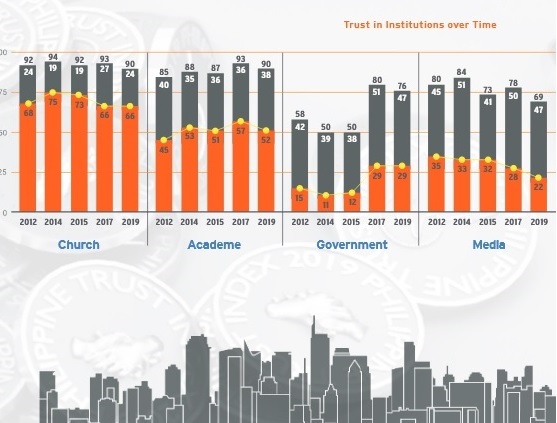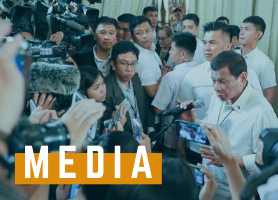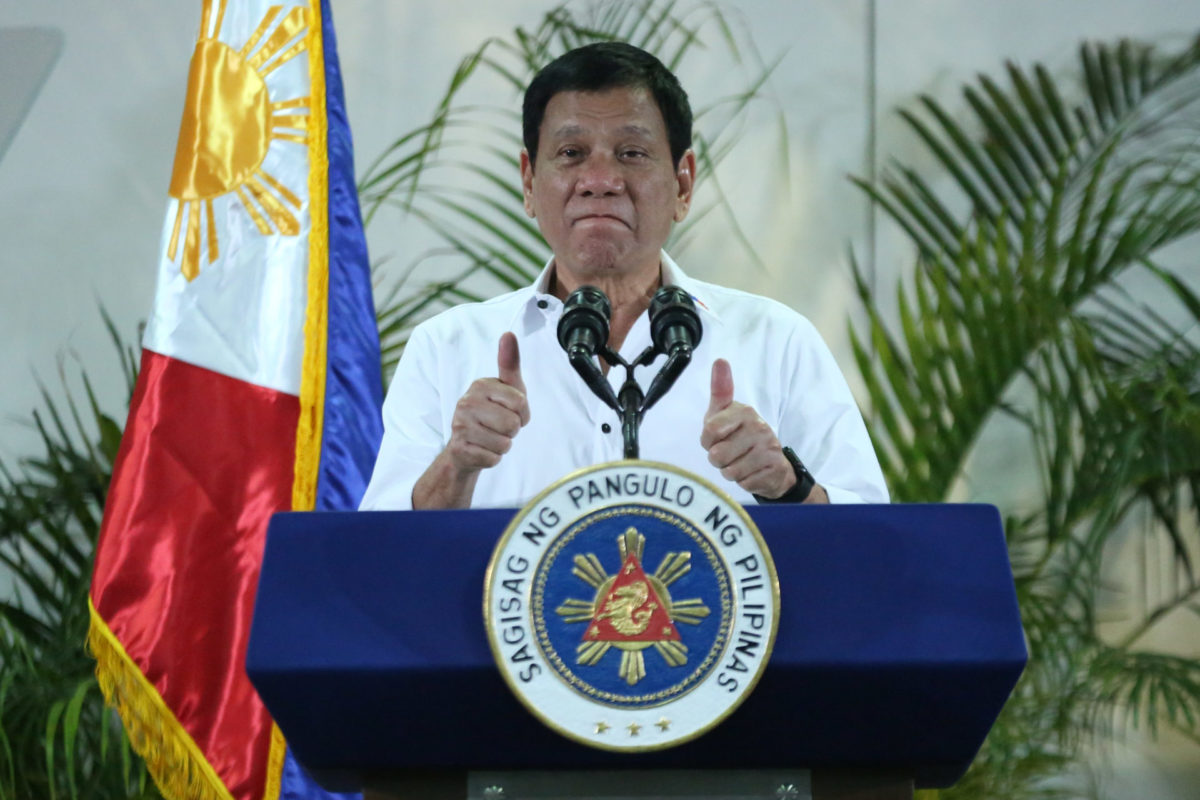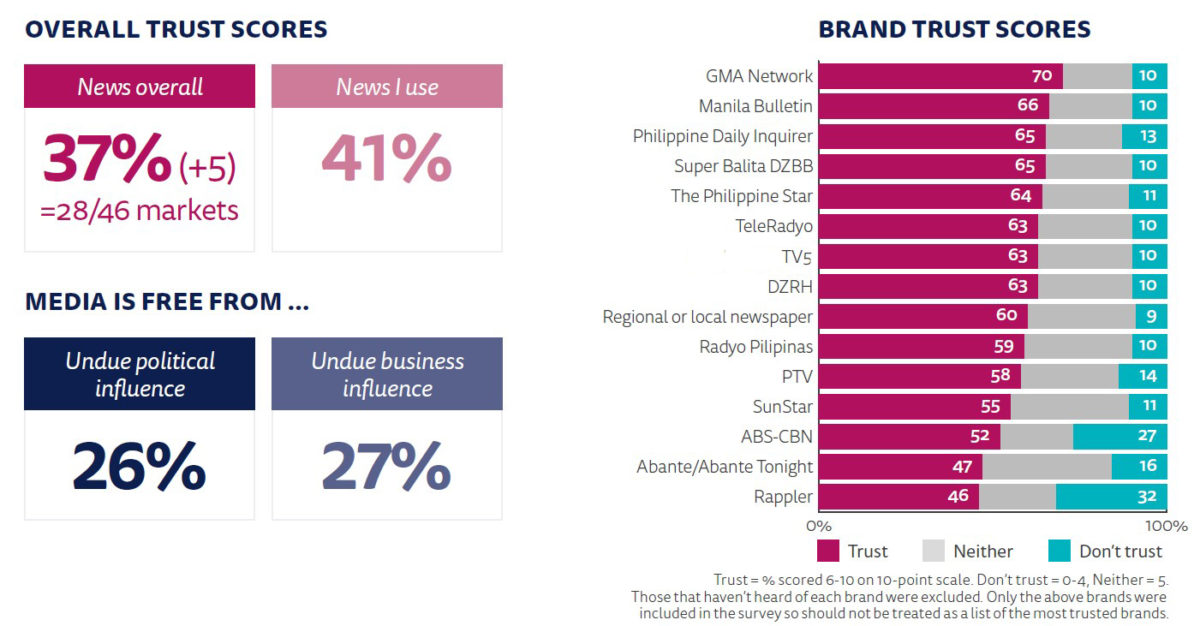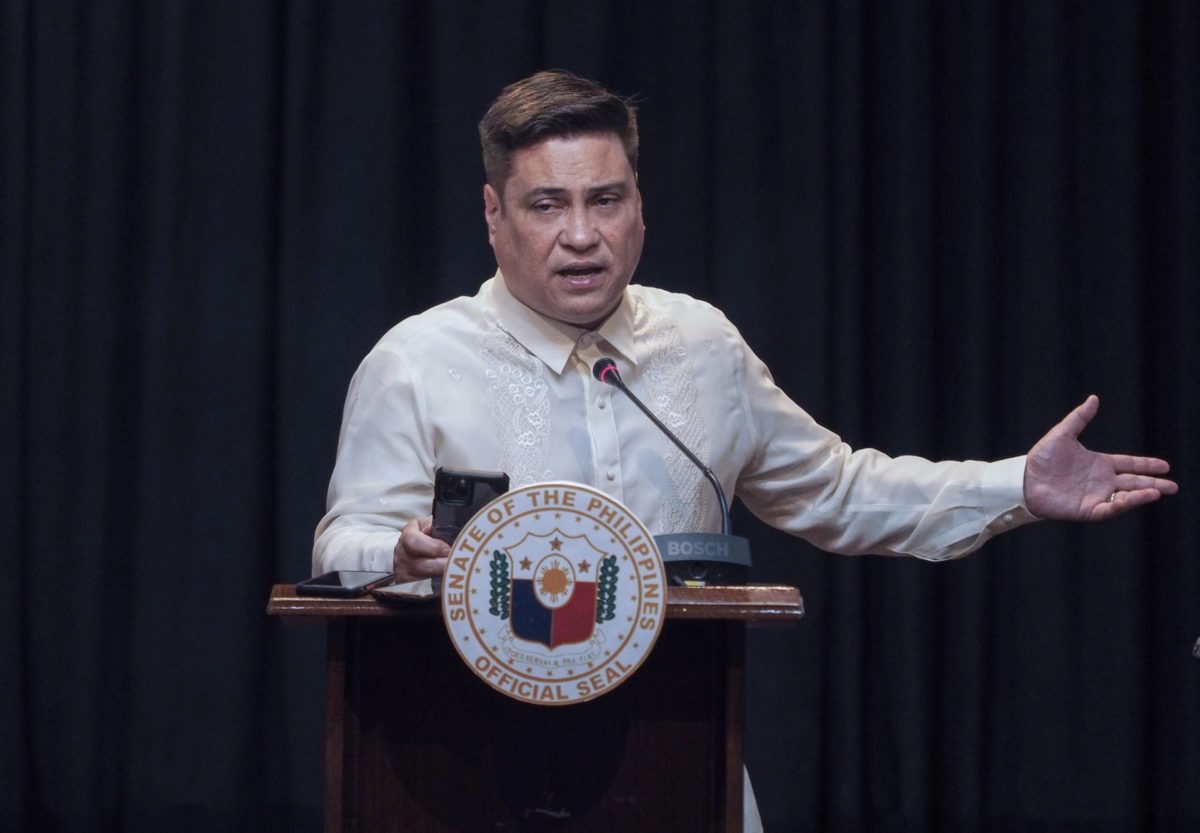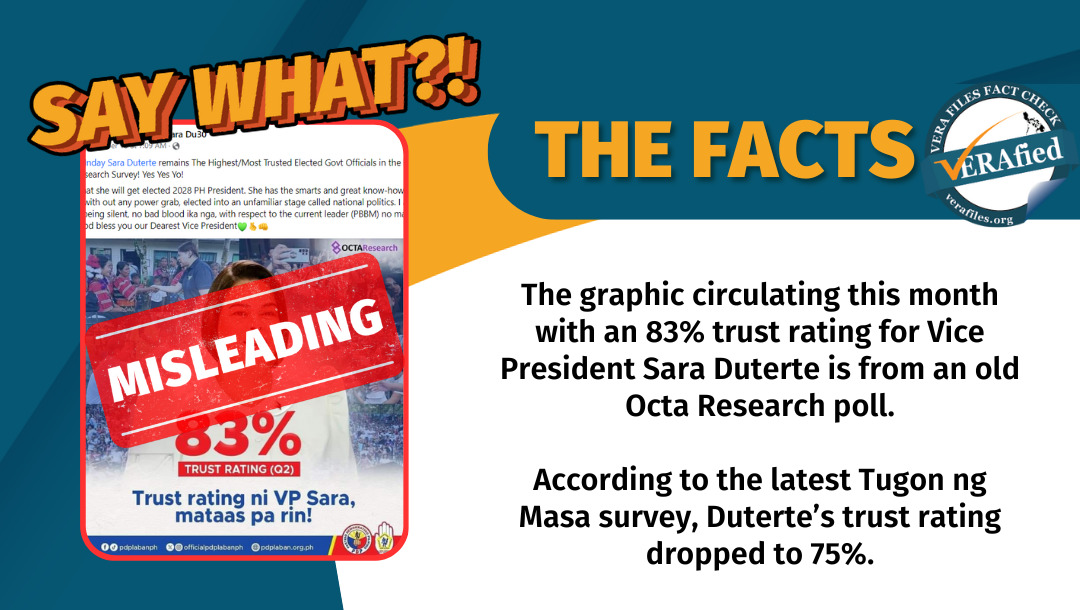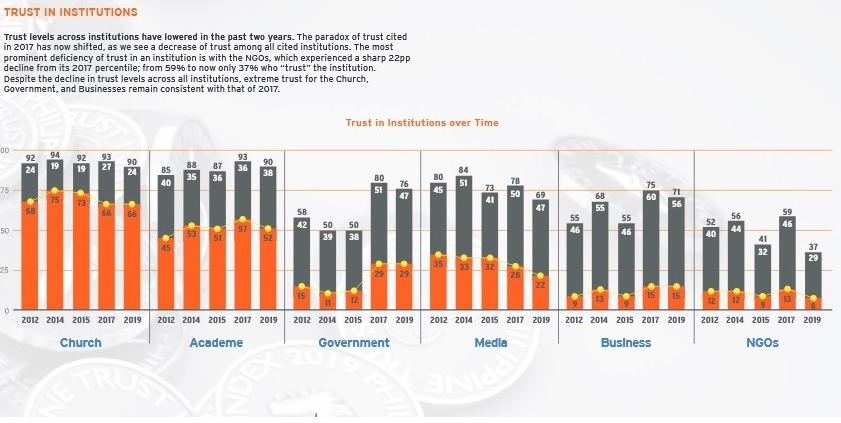
Filipinos’ trust in the church and government, two institutions at odds over several issues, remain strong, but confidence in the media sector sharply declined, according to the latest Philippine Trust Index (PTI) of consultancy firm EON Group.
Despite the decline in trust across all institutions, the poll also showed that “majority of Filipinos still opt to remain in the country.”
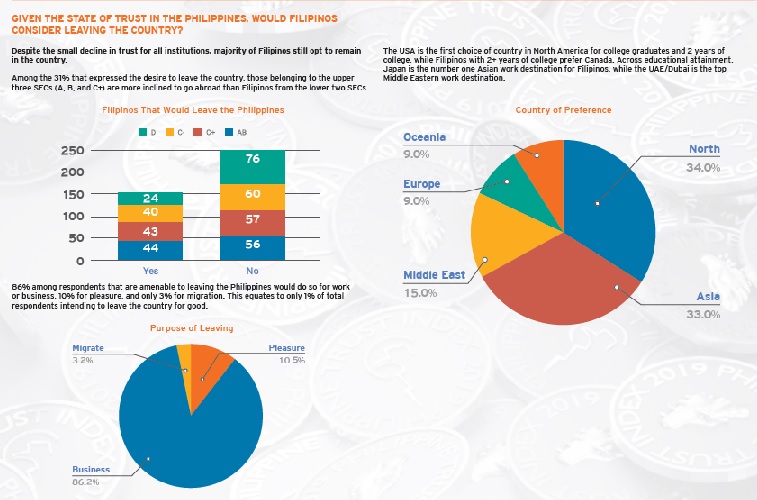
The 2019 PTI, the sixth in the series, collected 1,476 responses from randomly selected households across Luzon, Visayas, and Mindanao. The data gathering was conducted from March to April, ahead of this year’s national elections.
Results showed trust levels across six key institutions – Government, Church, Academe, Media, Business, and non-governmental organizations (NGOs) – declined in the last two years. However, trust in the Church, which has been the target of criticisms by President Rodrigo Duterte, remained high at 90 percent, down only by three points from 2017.
Trust in the government declined by only four points to 76 percent.
The academe also enjoyed high trust with 90 percent, declining by three points from two years ago. The business sector scored 71 percent, down by four points.
It was a sharp decline for media, down to 69 percent from 78 percent in 2017.
The NGO sector suffered the most, declining by 22 points to 37 percent from its level two years ago.
Other highlights of the study:
- Young Filipinos aged 18-24 are the least trusting of the government at 70 percent, as compared to Filipos aged 35-44, at 81 percent;
- Filipinos with access to social media are less trusting of the government at 75 percent, as compared to those without access, at 77 percent;
- The informed public, or Filipinos who are at least 25 years old with at least three years of tertiary education and are tuned in to news updates at least twice a week, is more trusting of the Office of the President;
- The general public is more trusting of the Office of the Vice President;
- National peace and security remain the most important trust drivers for the government, with 81 percent of respondents believing the present administration fulfills its mandate;
- Traditional media forms such as newspapers and radio remain primary sources of information for the majority of Filipinos;
- Businesses are seeing a change in primary trust drivers as Filipinos now see the importance of turning their focus on the welfare of everyday people;
- Filipinos’ awareness of NGOs is limited, with 35 percent of respondents not knowing about the institution at all; and
- Young Filipinos aged 18-24 are the most trusting of the academe at 94 percent.
EON conducted a separate study on the sentiments in the online community. The group gathered online conversations from June 2018 to March 2019, considering only local mentions. Keywords for each institution scan had two components: institution-related keywords and trust-related keywords. The survey scanned mentions from social media, forums, blogs, online publications, and digital news.
The study showed that distrust is the majority sentiment towards the government, accounting for 58.3 percent of scanned conversations. About one-fifth, or 19.5 percent of the conversations, were sparked by distrust due to controversies making headlines during the monitoring period. A sample size of 400 mentions was tagged to measure trust and distrust, as well as assess recurring key themes and topics.
Distrust was also the dominant sentiment in conversations about the media, accounting for over half of the mentions at 62 percent. “In colloquial conversations, terms such as ‘biased media’ and ‘fake news’ have become buzzwords – further reinforcing the prevailing theme that many users believe today’s media is allegedly influenced by political leanings,” the report said.
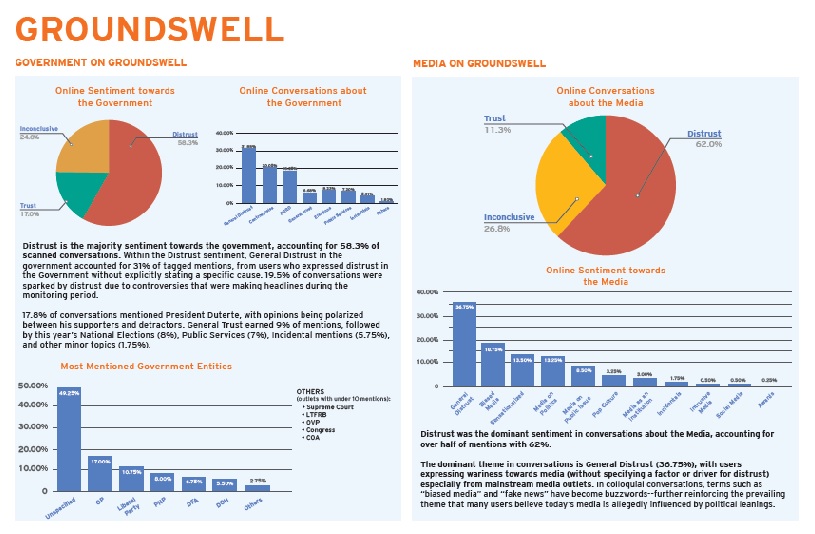
Other highlights of the study in the online community:
- The business sector continuously receives recognition for its corporate achievements, including those on good governance and corporate social responsibility;
- Consumers are very reactive to issues, with the banking, technology, and real estate sectors receiving the most mentions during the monitoring period;
- Trust was the prevailing sentiment for NGOs, accounting for 52.2 percent of conversations;
- General conversations about NGOs mostly stemmed from news articles, features, and blog posts about the institution’s advocacies; and
- Of all scanned institutions, the Church got the highest trust levels from Filipinos online, accounting for 86 percent of tagged conversations.
At the presentation of PTI 2019: Who’s Capitalizing on Society’s New Currency on September 9, EON Group Co-Founder and Chief Executive Officer Junie del Mundo said, “Changes around us are becoming more turbulent and societies more fragmented, that trust now holds an even greater power across all institutions.”
“This wealth of trust, like any wealth, must be managed, grown, and invested properly. After all, this is the only kind of wealth we can truly keep and bring with us after we pass on,” he added.
